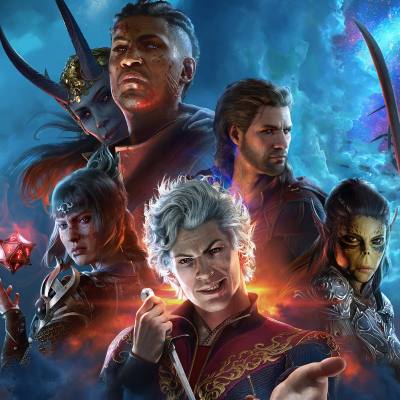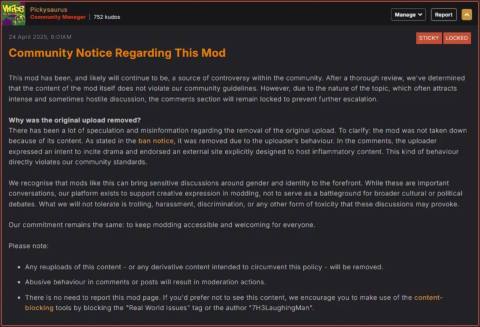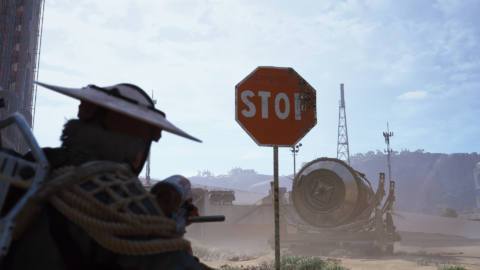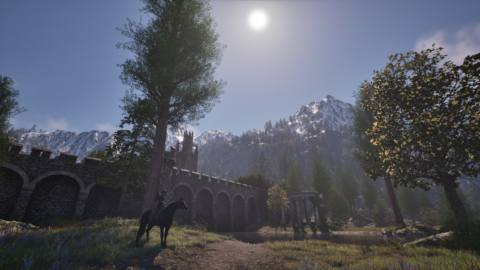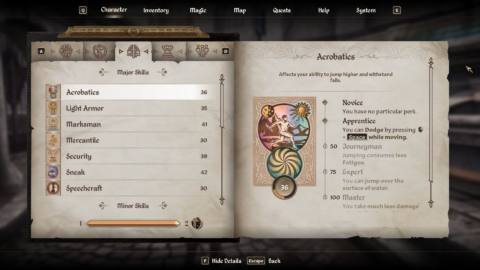Once, while hopping between systems in the Koronus Expanse, I woke up in a completely different part of the ship. Instead of the ostentatious throne I usually inhabit as a Rogue Trader—a title that puts me halfway between Vasco de Gama and a space pirate—I was suddenly on the lower decks. And the lower decks on a Warhammer 40,000 voidship are not a nice place to be. A craft as big as a city, it has an entire oppressed underclass who exist just to keep the guns loaded and the decks swabbed, who have their own culture, turf wars, and strange superstitions, and who have never seen the ship's captain in their life.
Some fast-talking eventually got me to a supervisor who could escort me back to the upper decks where I belonged, and where I found the confused crewman who'd been body-swapped with me overnight. That's just the kind of inexplicable thing that happens when you engage the warp drive, slinging yourself through the dimension next door for the sake of a shortcut. “Sure, you can travel at faster-than-light speed,” says Warhammer 40,000. “But every single time you press that button there's a chance you'll end up in an episode of The Twilight Zone.”
This is Warhammer 40,000: Rogue Trader at its best, when it's a game of interplanetary travel mixed with “stranger things happen at sea” horror, like Sunless Sea with space elves. You travel to a system, scan some planets, talk to your crew on the bridge, send your frigate into battle against some pirates. Maybe you try to sail to the Imperium and end up in a psychedelic choose-your-own-adventure book about places with names like the Witch-Cursed World. When it's mostly text, dialogue, and memorable weirdness, Rogue Trader is an outstanding game.
There are long stretches where Rogue Trader is not at its best, unfortunately, like the entire chapter you spend forced into gladiator servitude in an alien city. Or the unmapped forest maze planet. Or anywhere where you do a lot of isometric jogging around while being interrupted by fight after fight.
Part of what makes Rogue Trader's combat boring is the amount of it. You can get away with this much fighting in a game with real-time combat, but Rogue Trader's turn-based variety lends itself to a more considered approach where every fight's a different kind of tactical challenge, rather than treating combat as a kind of padding to fill the gaps between other stuff. Rogue Trader is as padded as a lunatic's cell.
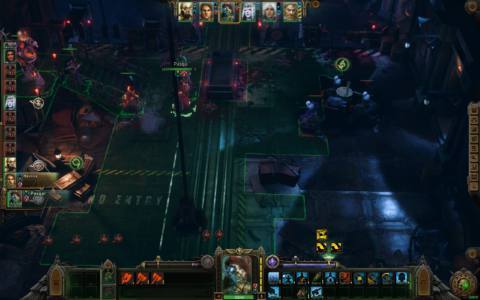
And unlike the warp travel, it's not nearly as evocative of the setting. My tech-priest starts every fight with some tedious paperwork where he designates three areas of the battlefield to be the frontline, backline, and middle bit, each with differing buffs for allies and penalties for enemies who stand in them. That's not unique to tech-priests—it's an ability he has because his class is tactician, a choice available to multiple members of my squad.
I've specced several of them into the officer class because it's wildly overpowered, with an ability that lets them bully other characters into taking an entire turn for free. My psychic navigator has a third eye she can unveil to murder anyone who sees it, but because she's an officer she's more useful when she just points at one of the soldiers in the squad and orders them to run over and hit someone a bunch of times.
Each of the characters embodies a different archetype from Warhammer 40,000's rich menu of options. There's a Sister of Battle, an unsanctioned psyker, an agent of the Inquisition. Outside of combat they're full of personality, and I can't stop the Space Wolf from bursting into sagas like he's secretly the Beowulf poet. In combat? He's just another soldier.
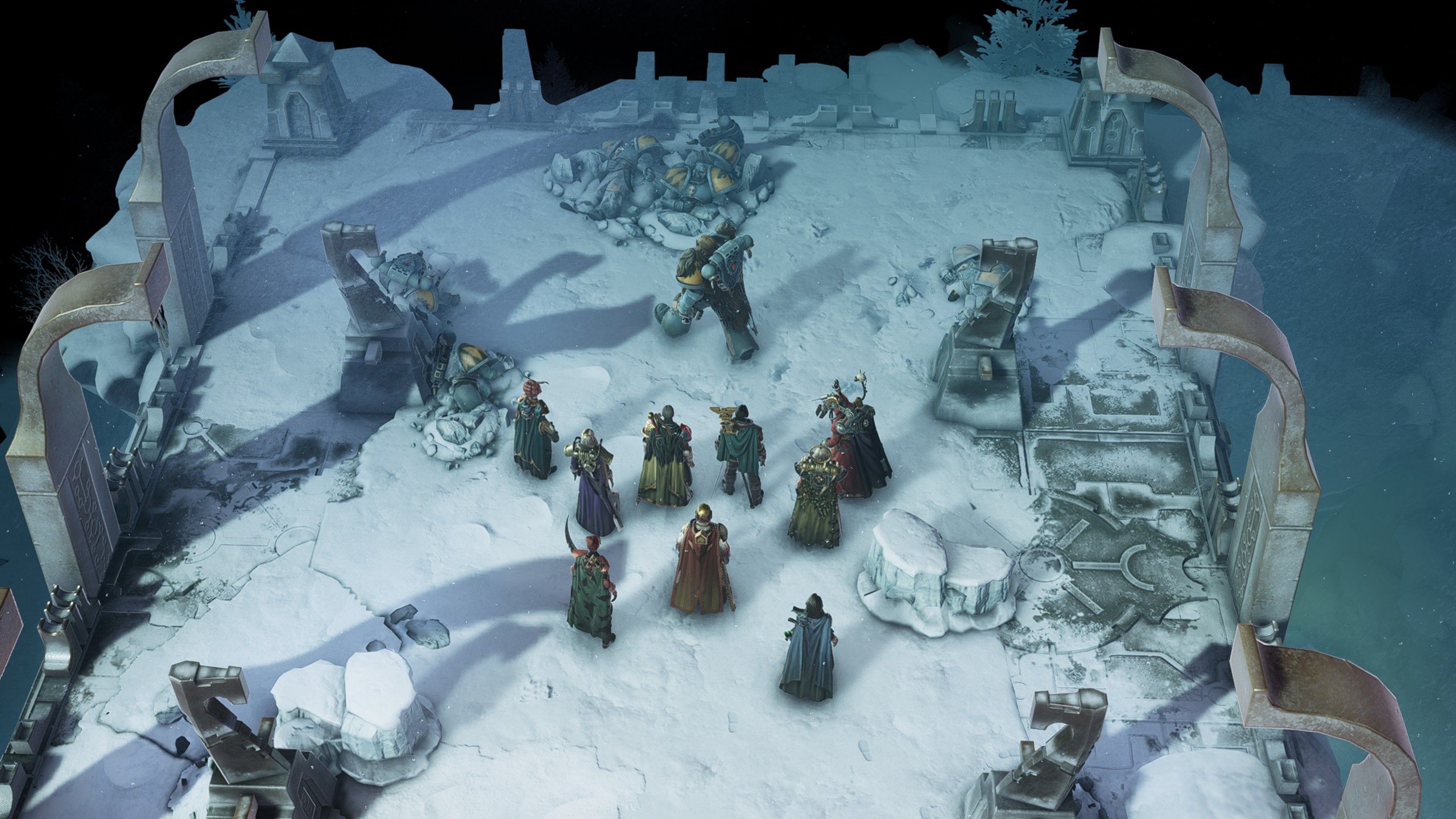
Mod squad to the rescue
As with Owlcat's previous CRPGs, Pathfinder: Kingmaker and Pathfinder: Wrath of the Righteous, the solution to every problem is to download a mod. In Kingmaker's case it was Bag of Tricks, a bundle of tweaks that let you repair bugged questlines, keep an eye on romance-progress flags, skip the clunkier parts of kingdom management, and make it a better game. ToyBox evolved from that, providing similar options for Pathfinder: Wrath of the Righteous, and it's returned under the same name for Rogue Trader.
Even after patching, Rogue Trader remains buggy. I romanced the navigator, and managed to simultaneously get the ending slide where we couldn't stay together because she was forced into a loveless arranged marriage, and immediately afterwards get the ending slide where I was the man she was forced into a loveless arranged marriage with. A major sidequest I needed to finish to unlock the secret ending stopped progressing at some point, and two of my tech-priest's skills remain about a thousand points higher than they should be thanks to a bugged item he equipped.
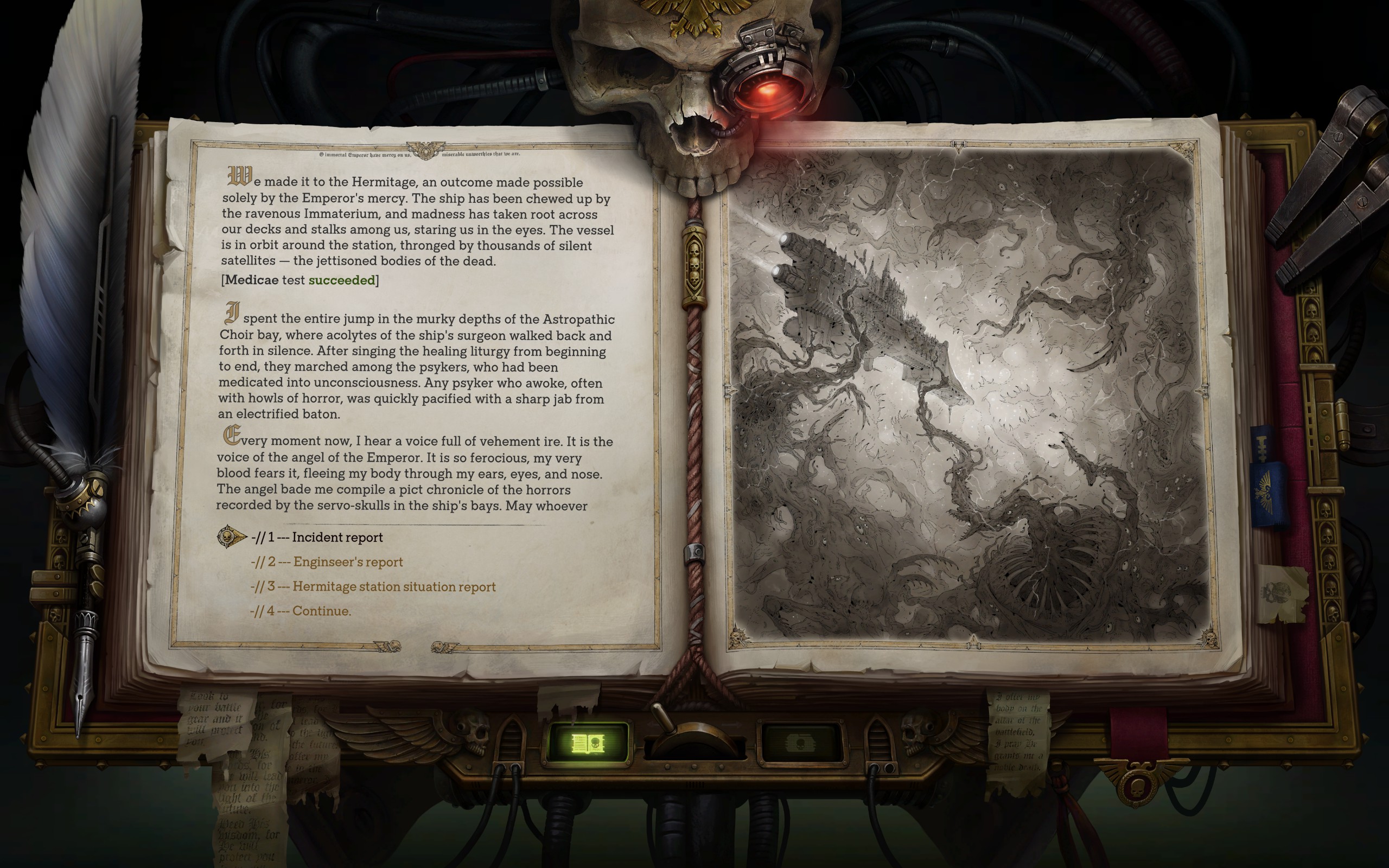
Rogue Trader is somewhere between the broken-as-hell launch version of Kingmaker and the busted-in-places-but-mostly-OK Wrath of the Righteous. There's enough jank that you can't ignore it, but not so much that you can write the whole game off. There's good stuff underneath, stuff ToyBox makes easier to uncover.
To install ToyBox, download the latest release from Github. Make a directory in AppData\LocalLow\Owlcat Games\Warhammer 40000 Rogue Trader\UnityModManager called 0ToyBox0 and paste the files there. Once you're in-game press Ctrl+F10 to bring up the ToyBox window and knock yourself out with all the options available, including infinite free respecs.
Those free respecs are maybe enough of a reason to install ToyBox on its own, but I'm partial to the option that lets party members you had to leave back on the ship contribute to dialogue, or just be added to the squad and to hell with the size limit. The one that really made Rogue Trader more enjoyable was “kill all enemies” which I mapped to Delete so that whenever I got sick of a fight (which was often) I could just deep-six the latest gang of boring cultists or dark eldar and get on with the actual game.
There's an option called Murderhobo mode that kills every enemy the second they dare to engage you in combat, but that breaks some fights—like the final arena battle in chapter three where you have to cosplay Maximus Decimus Meridius for an audience of BDSM space elves. There are also some fights you have to finish yourself, whether because enemies infinitely respawn until you disable their teleporters or light some magic torches or whatever, or because they have important dialogue to spill the moment they die. It's not a “skip all combat” button, but it is a “skip enough combat that your brain doesn't pick up its little suitcase and walk out the door due to boredom” button. It feels essential for a replay, and frankly I wish I had it on my first cursed playthrough where I lost 18 hours of progress to a quest-breaking bug at the end of chapter one.
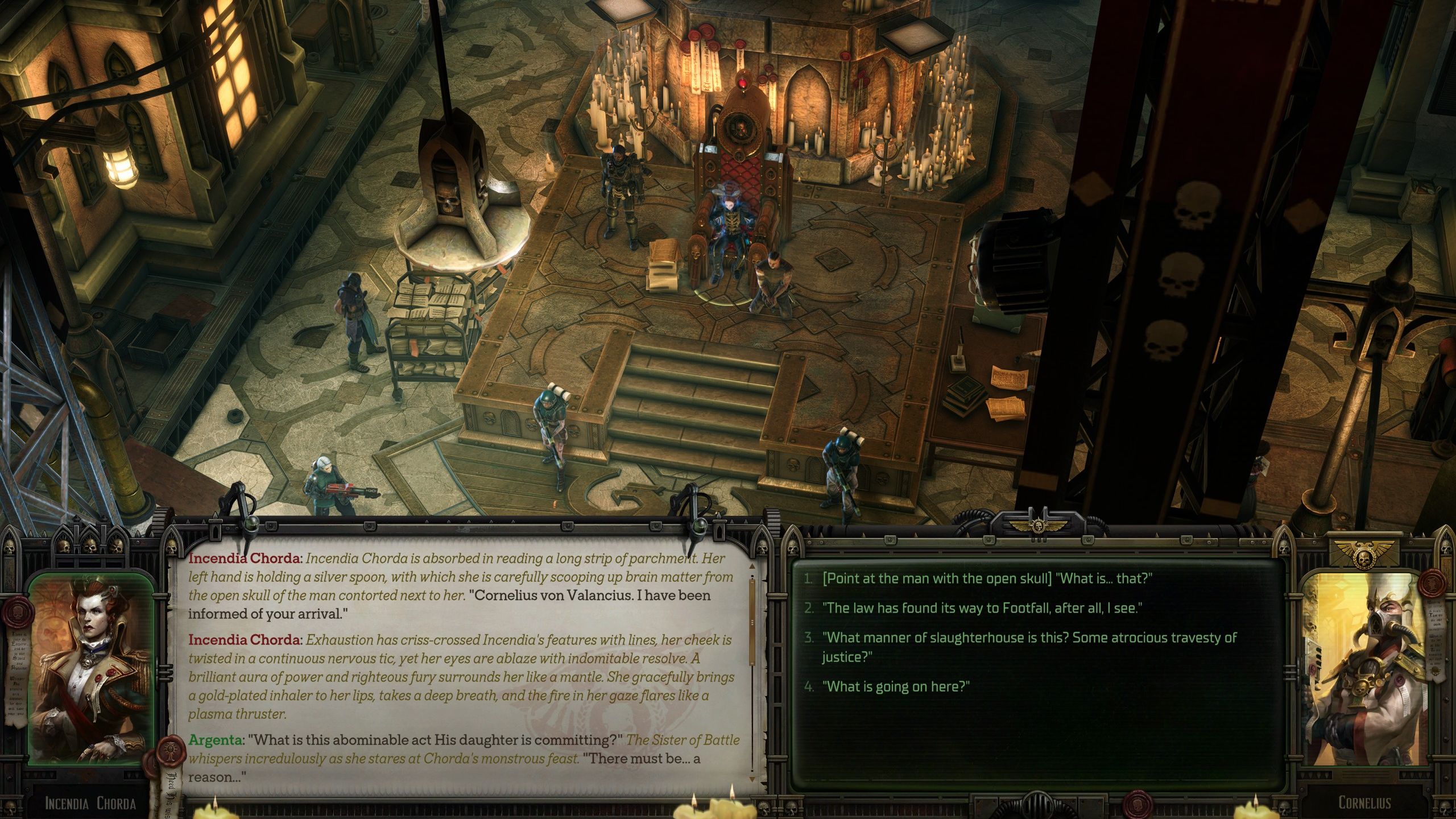
Late in the game, there's a powerful scene where a fanatical Rogue Trader sets herself up as judge and jury, declaring her subjects heretics while eating one's brain with a silver spoon because, she says, doing so grants her a greater understanding of criminal thoughts. That scene becomes a tense negotiation with someone both powerful and powerfully mad, whose flamethrower-toting enforcers could turn on you any second. It's immediately followed by a tedious stealth level in a sewer that combines the awkwardness of every stealth sequence in a game with no stealth mechanics and the blandness of every budget-saving sewer level.
The best and the worst parts of Rogue Trader sit side by side. Modding in a skip button let me concentrate on the good stuff, and see the better game Rogue Trader could have been. One that's basically a Warhammer 40,000-themed Fighting Fantasy choose-your-own-adventure book.
Now that I think about it, I'm pretty sure I used to skip past some of the combat in the Fighting Fantasy books too.

